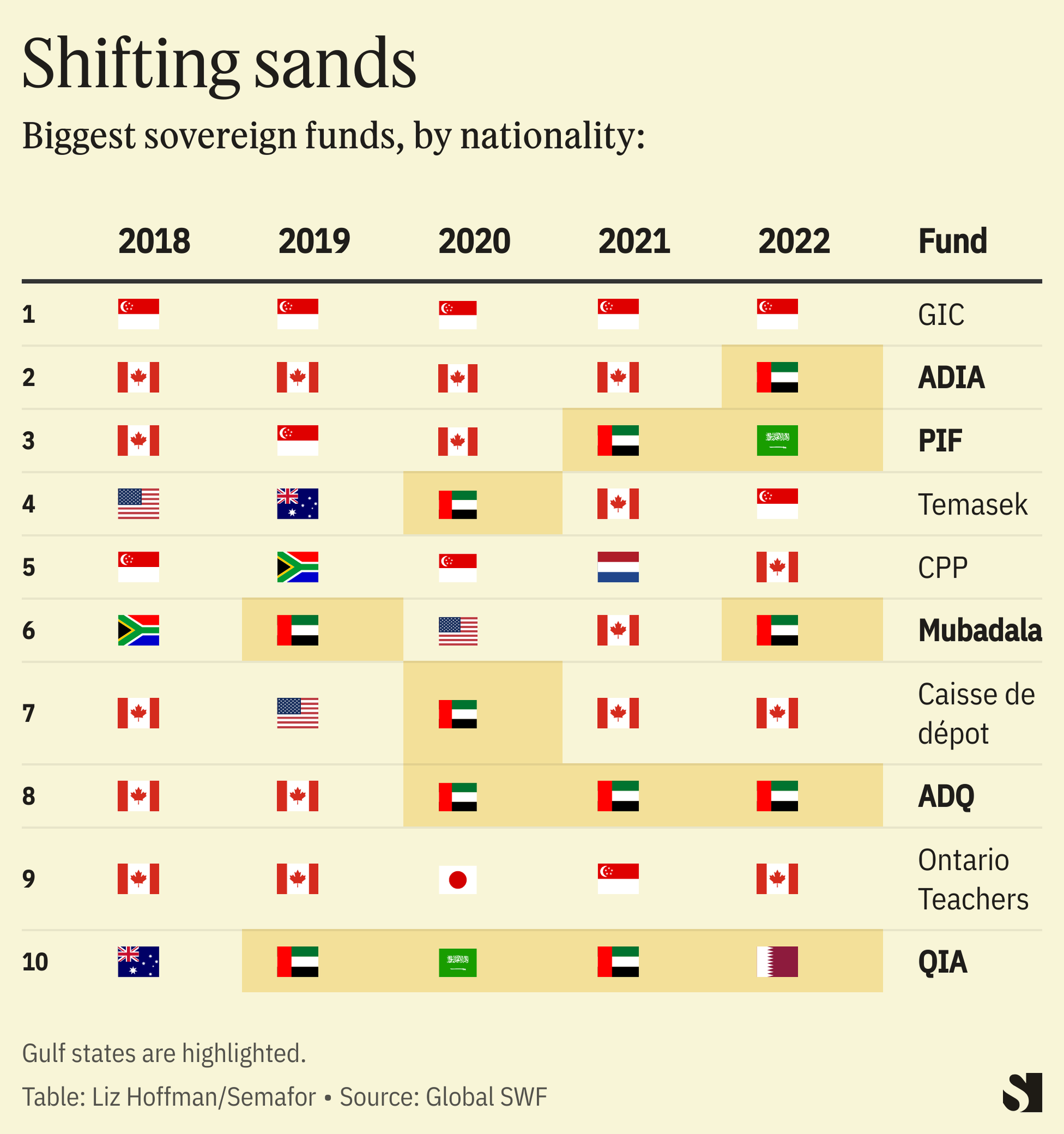The Scoop
In a decade as a Hollywood power player, Aryeh Bourkoff has invested in one hot startup after another: Epic Games, The Athletic, Oatly, Cal Ripken’s baseball camps, Rihanna’s lingerie line, podcaster Gimlet, soccer streaming site FuboTV.
In March, his fund, LionTree Partners, made a small but curious investment: millions of dollars into the IPO of Abu Dhabi’s state-owned gas producer. The deal came at the request of Bourkoff’s largest investor, the powerful brother of Abu Dhabi’s ruler, according to people familiar with the investment, which hasn’t been made public.
A top Bourkoff deputy cautioned against the investment in ADNOC Gas, as the Emirati company is now known, the people said. So did an advisory panel of other investors in the fund, who argued that it was outside Bourkoff’s mandate to back “creative industries and the digital economy.” They ultimately signed off because Gulf IPOs tend to be priced attractively and quickly pop — as ADNOC’s did, leaving LionTree with a fast profit.
The deal likely strengthened Bourkoff’s relationship with Sheikh Tahnoon bin Zayed, who is Abu Dhabi’s deputy ruler, the UAE’s national security advisor and the brother of the country’s president, Mohamed bin Zayed. Tahnoon controls several of Abu Dhabi’s state investment funds, which handle its vast oil wealth and are among the largest in the world.
Financiers are chasing trillions of dollars from Middle East states eager to tilt their economies away from fossil fuels. With the West’s money machine of venture capital and private-equity stalled, the money being dangled by the UAE, Saudi Arabia, and Qatar is even more seductive.
Abu Dhabi alone controls about $1.5 trillion, about two-thirds of it under Sheikh Tahnoon’s network of funds. It has provided key money for Apollo aircraft deals, Blackstone’s real-estate arm, and Jeff Zucker’s new sports and media fund, which is about to own London’s Telegraph newspapers. Bourkoff’s investment in ADNOC — which accounted for just a token slice of an oversubscribed IPO that raised $2.5 billion — shows Wall Street’s desire to stay on the right side of the region’s shot-callers.
The emirate is positioning itself as the Middle East’s financial hub — the “capital of capital” — a U.S.-allied, politically stable, relatively liberal oasis in the region. It agreed this spring to a majority stake in Fortress, the Wall Street investment firm, and has flirted with acquiring Lazard and Standard Chartered.
Abu Dhabi has taken public several state-owned companies this year, generating billions of dollars in cash. ADNOC Gas was the largest, and a high-profile debut for Abu Dhabi’s domestic stock exchange.
Bourkoff founded LionTree in 2012 after a star career as an investment banker at UBS, and since then has assembled an enviable network — David Zaslav, Shari Redstone, and John Malone are all clients — that has put him at the center of media dealmaking as both adviser and investor.
It isn’t clear whether LionTree still owns the shares, which are up more than 50% since the listing. A spokeswoman declined to comment.
In this article:
Liz’s view
When asked why he robbed banks, Willie Sutton reportedly said “because that’s where the money is.”
Most Western financiers don’t really want to be scraping for favor in the Gulf. It requires occasionally troublesome moral compromises, as when CEOs tiptoed back to Saudi Arabia after Jamal Khashoggi’s murder. It can also require professional trade-offs, as the ADNOC deal shows.
But that’s where the money is.
In 2018, none of the 10 most active sovereign wealth funds were Middle Eastern, according to Global SWF. Half were Canadian. In 2022, five were from the Gulf — including two, ADQ and ADIA, controlled by Bourkoff’s biggest investor, Sheikh Tahnoon. High oil prices are only adding to their coffers.

The Gulf states aren’t purely economic actors. They have plenty of money, but what they want is credibility. Whether splashy investments in European soccer teams or electric-car startups earn big returns for Saudi Arabia’s Public Investment Fund is a bit beside the point, which is to tilt the kingdom’s economy away from oil and project its influence abroad.
PIF sold out of money-losing McLaren, but not before launching the Saudi Arabia Grand Prix, which brings billionaire spectators to Jeddah. Lucid has been a money pit investment for PIF but is building the kingdom’s first domestic car factory.
Much of the money to build that factory was PIF’s to begin with, just as most of what LionTree invested in ADNOC came from Abu Dhabi’s government, which already owned the company. But its round trip through the West lends it credibility when it comes back, this time as a vote of confidence in the Gulf’s economic future.
Room for Disagreement
Wall Street has courted wealthy, autocratic-adjacent regimes before in search of profits and wound up regretting it. Hiring the kids of well-connected Chinese executives cost JPMorgan $264 million in fines. Goldman Sachs paid two-thirds of a year’s worth of profits for helping corrupt Malaysian officials steal public money. The bank formerly known as Credit Suisse is still in trouble for banking Nazis.
In places like the Gulf, where the line between the government and the economy is somewhere between nonexistent and extremely fuzzy, it’s not hard to run afoul of U.S rules.
Notable
- Abu Dhabi’s trillion-dollar man — Bloomberg
